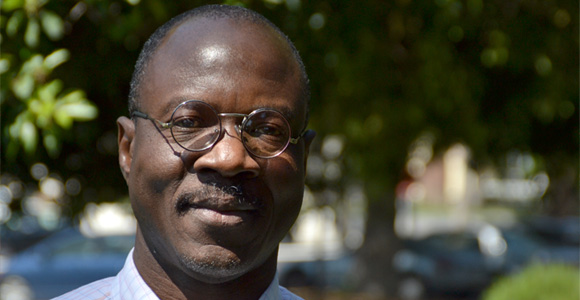
Olufemi Taiwo believes most U.S. citizens have a distorted view of the African continent – and that the discipline of African studies is partly to blame.
“When people talk of liberal democracy, it is as if they think the water and the air in Africa are inhospitable to democracy,” says Taiwo, professor of philosophy at Seattle University and renowned scholar of African Studies. “When you read the scholarship about Africa, you find an overemphasis on how things are radically different there. That’s wrong. It’s as if you need a new language to speak about Africa because it is so different.
“African studies in the United States are responsible for constructing that narrative.”
Taiwo, who also teaches global African studies and has lectured in universities throughout the world, speaks on “Freedom and Democracy in Contemporary Africa” in Scripps College’s Humanities Auditorium at 4:15 p.m. on March 22.
As the recipient of the spring 2012 Erma Taylor O’Brien Distinguished Visiting Professorship, Taiwo visits Scripps College the week of March 19 to lecture in classes and to meet with faculty and students.
Africa’s rich history is often overlooked by the media and in university discussions, he says, hoping his week-long visit provokes debates about the way people in this country perceive the African continent.
“African studies make it almost unattractive to do anything with Africa other than saving it,” Taiwo says. “Africa is more than the sum total of its pathologies.”
Named in honor of Erma Taylor O’Brien ’36, the O’Brien Distinguished Visiting Professorship was endowed through her estate. The professorship allows Scripps College to host visiting scholars-in-residence whose expertise in the liberal and fine arts fields significantly enriches academic thought.

